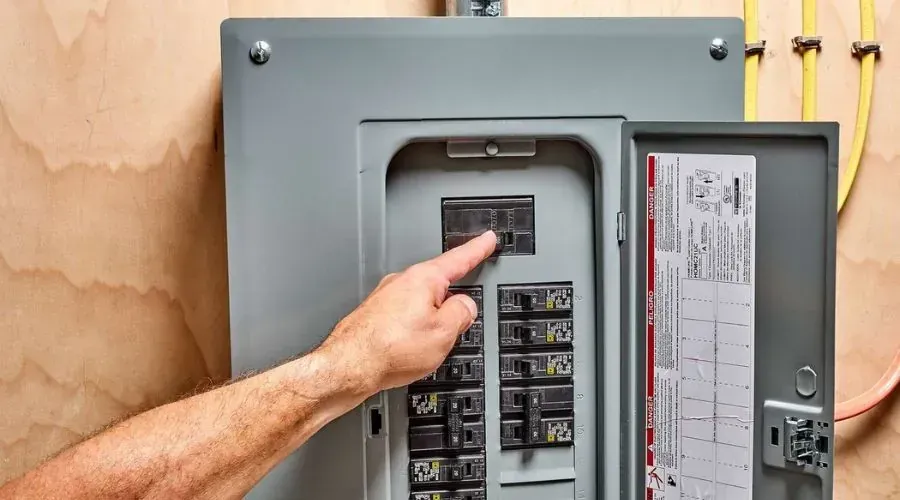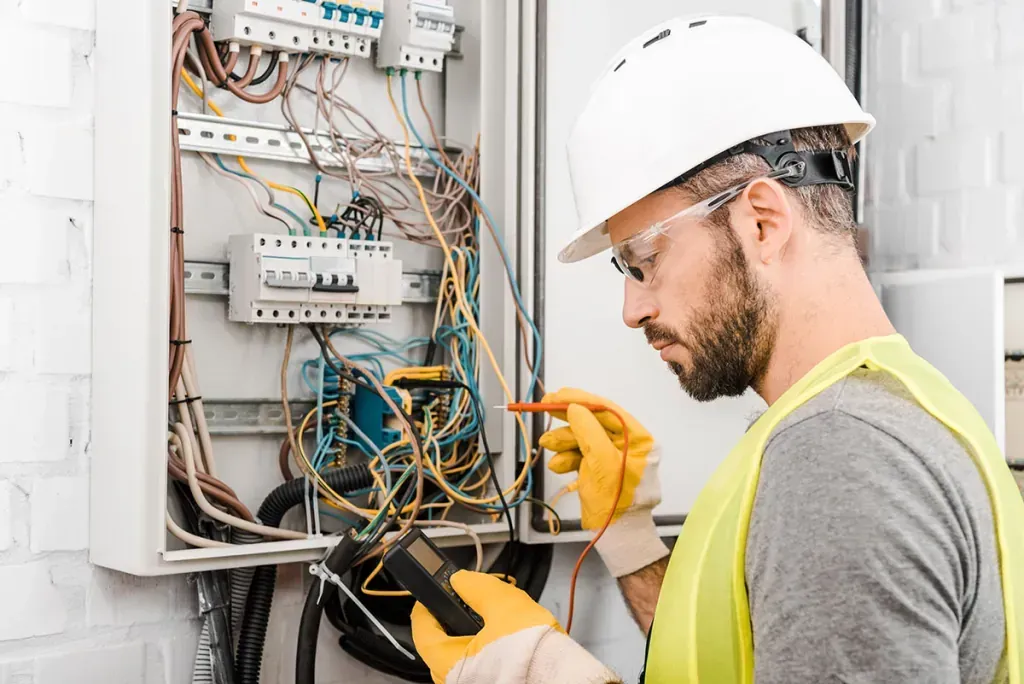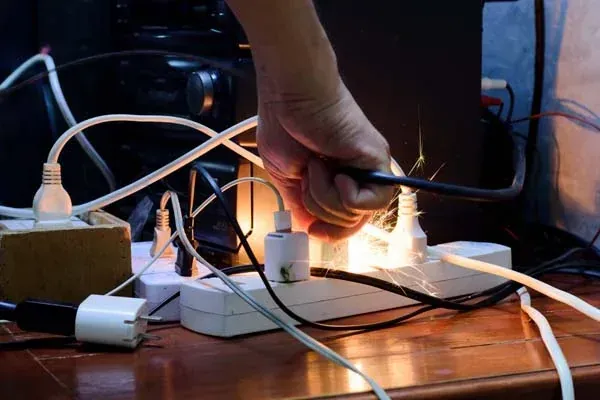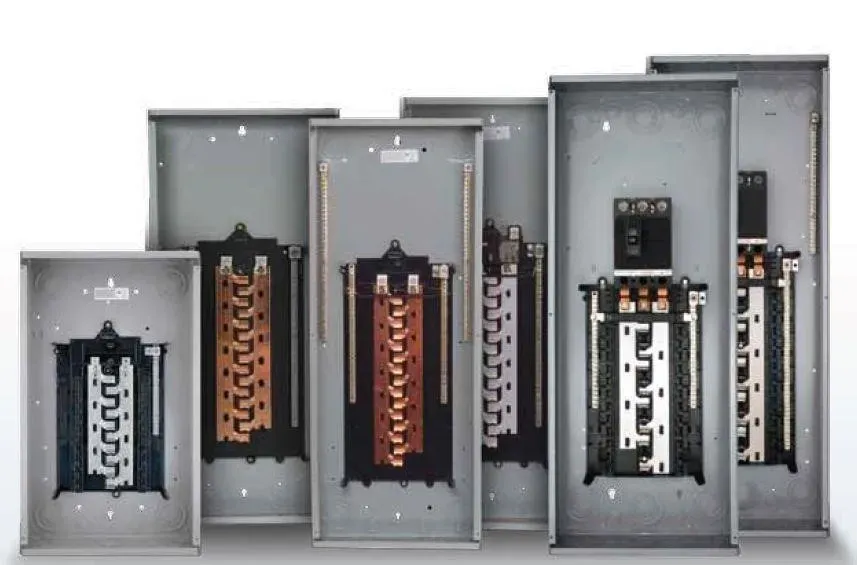Signs Your Electrical Panel Needs Upgrade in Throop
Remember the days when homes just needed power for a handful of light bulbs, a refrigerator, and maybe one TV? Life was simpler back then. Today, we're living completely differently like charging multiple phones and tablets, running home offices, streaming entertainment on several devices, and powering smart home technology throughout the house.
Here's the catch: many Throop homes still rely on electrical panels installed 30, 40, or even 50 years ago. These panels are trying to handle a job they were never designed for. It's like expecting a bicycle to keep up with highway traffic – the equipment just isn't matched to the demand.
What Your Electrical Panel Actually Does
Your electrical panel serves as the distribution hub for your home's entire electrical system. Power comes in from the utility lines, and the panel divides it up to reach every room, outlet, and appliance in your house.
Older panels typically deliver 100 amps of electrical service. That sounds like plenty, but modern households often require 200 amps or more to operate safely.
Warning Signs That Demand Your Attention

Breakers That Won't Stay On
Does your circuit breaker flip off when you're blow-drying your hair and someone else starts the vacuum? That's your electrical panel essentially shouting, "This is too much for me!"
Sure, an occasional breaker trip happens. But if you're making regular trips to reset breakers, especially for the same circuits then at that time your home is drawing more power than your panel can safely supply.
Lights That Dim or Flicker
Have you noticed your lights dimming briefly when the refrigerator compressor starts up? What about flickering when you turn on the microwave? This indicates your panel struggles to maintain steady electricity to all your devices simultaneously.
Think of it like having weak water pressure when someone flushes a toilet upstairs, your shower turns into a trickle downstairs. Same principle with electricity.
Burning Smell Coming From the Panel
This one's serious and urgent. If you ever detect a burning plastic odor or notice scorch marks anywhere around your electrical panel, call a professional electrician immediately. Don't wait even a day. This signals that wires are overheating inside the panel, which creates a genuine fire hazard.
Your Panel Has Seen Better Days
Take a close look at your electrical panel. Do you see rust spots? Corrosion? Is the brand name something like Federal Pacific or Zinsco? These particular manufacturers produced panels between the 1950s and 1980s that are now recognized as having significant safety defects.
Even if your panel looks decent on the outside, age matters tremendously. If your Throop home is more than 25 years old and nobody's upgraded the electrical panel, you're overdue for at minimum a professional evaluation.
Extension Cords and Power Strips Everywhere
Look around your house honestly. Are power strips daisy-chained together? Do you have extension cords running permanently to different rooms? Are you constantly hunting for available outlets?
This scenario indicates two related problems: insufficient outlets throughout the house AND inadequate electrical capacity in your panel. Modern living requires both more outlets and more overall power.
The Panel Feels Hot to Touch
Your electrical panel should always feel room temperature or maybe slightly warm at most. Touch it carefully (the back of your hand is safer for testing). If it feels noticeably warm or actually hot, electricity is encountering resistance as it flows through connections. Resistance creates heat, and heat in electrical systems means danger.
You Can't Install an EV Charger
Planning to purchase an electric vehicle? Home EV chargers typically require a dedicated 240-volt circuit and draw substantial power often 30 to 50 amps continuously while charging overnight. Many older electrical panels lack sufficient available capacity to add this load safely.
Why Today's Households Consume So Much Electricity
Consider what's probably running in your Throop home right now:
- Refrigerator and possibly a chest freezer
- Electric or gas stove (even gas stoves need electricity for ignition and controls)
- Microwave oven
- Dishwasher
- Washing machine and clothes dryer
- Multiple televisions in different rooms
- Desktop computers, laptops, and tablets
- Gaming consoles
- Smartphone chargers in every bedroom
- Central heating and cooling system
- Electric water heater
- Home security system with cameras
- WiFi router and various smart home devices
- Perhaps an electric vehicle charger
That's an enormous amount of electrical demand compared to what homes needed decades ago. Even though individual appliances have become more energy-efficient, we're simply using far more of them simultaneously.
What Happens If You Ignore These Warnings
Some people reason, "Well, it's been working fine for all these years." But continually overloading an outdated electrical panel creates genuine hazards:
Fire danger: Circuits pushed beyond their capacity generate excessive heat. Heat degrades wire insulation. Degraded insulation can expose live conductors. Exposed conductors spark. Sparks ignite fires. It's a progression you definitely don't want happening in your walls.
Equipment damage: When your panel can't deliver consistent, stable power, it can shorten the lifespan of expensive appliances or permanently damage sensitive electronics like computers and televisions.
Problems selling your home: If you eventually decide to sell, an inadequate or outdated electrical panel will surface during the home inspection and become a major negotiating point or possibly kill the sale entirely.
Insurance complications: Some insurance companies charge higher premiums for homes with certain old panel types or may refuse coverage altogether until the panel is upgraded.
What You Should Do Next
Recognized some of these warning signs in your own home? Here's your action plan:
Schedule a professional assessment: A licensed electrician can evaluate your panel's condition, capacity, and safety. Bee-lectric and other qualified professionals in Throop can determine whether your system needs upgrading or just maintenance.
Plan financially for upgrades: Electrical panel upgrades represent a significant expense, yes, but consider it an investment in safety and your home's value. It's protection for your family and property.
Don't even think about DIY: Working on electrical panels requires specialized training, proper tools, and permits. This is absolutely not a project for homeowners. You're dealing with your home's main power supply – mistakes can be fatal.
Considerations for Throop's Climate
Living in Northeastern Pennsylvania means your electrical system faces seasonal demands. Winter heating (even gas furnaces need electricity for blowers and controls), holiday lighting, space heaters in older homes, and increasingly common air conditioning in summer all stress electrical panels. These fluctuating seasonal loads can push an already-marginal panel over the edge.
The Bottom Line
Your electrical panel might be hidden away in your basement or utility closet where you rarely notice it, but it's absolutely vital to your home's safety and function. Modern life demands dramatically more electricity than previous generations used, and older panels simply weren't engineered for today's reality.
Pay serious attention to warning signs like breakers that trip frequently, lights that dim when appliances start, or any burning smells near electrical equipment. These aren't minor inconveniences to tolerate but they're urgent messages that your electrical system needs professional attention.
Having your electrical panel inspected by certified electrician like Bee-lectric provides valuable peace of mind. You'll know with certainty whether your home can safely handle your family's electrical needs, or whether it's time for an upgrade.



